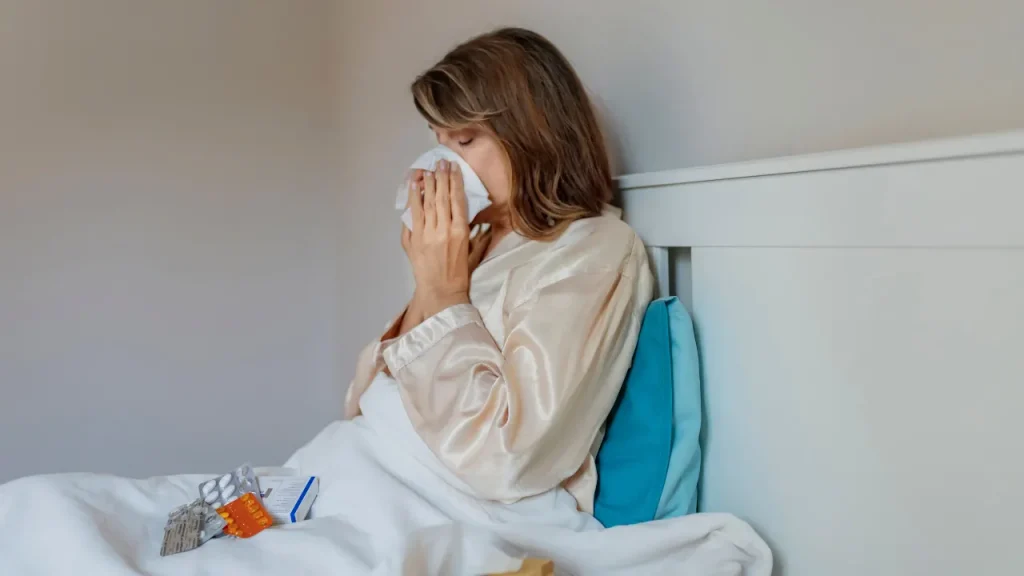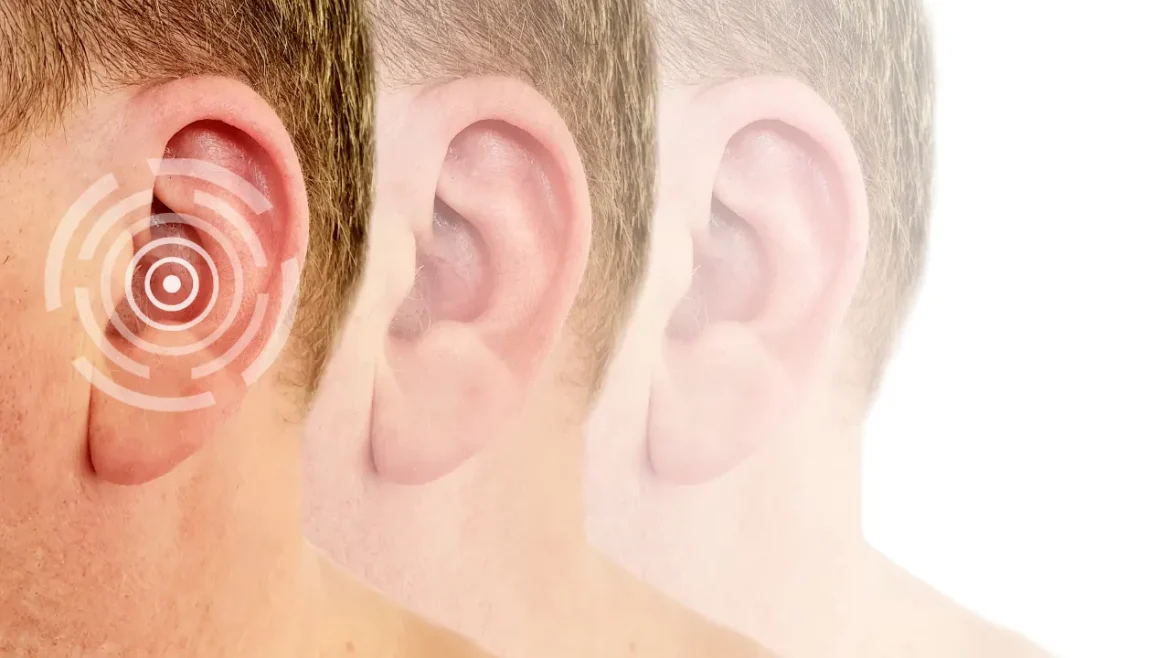Autoimmune Sudden Sensorineural Hearing Loss (SNHL): Description, Causes, And Treatment Protocol
Description
A kind of hearing impairment known as autoimmune spontaneous sensorineural hearing loss (SNHL) can be recognized by a sudden and unexplained drop in hearing sensitivity. The auditory nerve or the fragile sensory hair cells in the inner ear are the primary targets of this illness, which causes problems with the brain’s ability to receive sound signals. Its abrupt start, which frequently takes place within a few days or hours, distinguishes autoimmune SNHL from other types of hearing impairment that could develop more gradually. Bilateral, i.e., in both ears, or unilateral, i.e., in one ear loss of hearing is both possible in people with autoimmune SNHL.
The degree of hearing loss might occasionally fluctuate, with relapses interspersed with periods of either partial or whole recovery. Diagnostic and therapeutic issues may arise from this shifting character. The disorder is linked to an aberrant immune response where the immune system of the body mistakenly attacks the inner ear components, causing inflammation and damage. Autoimmune SNHL is more difficult to diagnose and treat than other kinds of hearing loss because it frequently lacks observable external causes, like infections or physical damage.
You May Also Like:
OLLY GOODBYE STRESS GUMMIES REVIEWED: A LEADING STRESS RELIEF PRODUCT
CONSTANTLY FEELING THE EFFECTS OF BURNOUT AND ANXIETY? LEARN ABOUT STRATEGIES FOR COPING WITH STRESS
Autoimmune Sudden Sensorineural Hearing Loss (SNHL): Description, Causes, And Treatment Protocol is an original (HealthXWire) article.
Possible Causes
Although the actual etiology concerning autoimmune sudden sensorineural hearing loss (SNHL) seems unknown, it is thought to be the result of an abnormal immune response that attacks the hearing-related inner ear structures. There have been many suggested causes and contributing factors, but the underlying mechanisms are complicated and may differ from person to person. A few possible reasons for autoimmune SNHL comprise the following: –
Genetic Predisposition: Possible hereditary propensity to autoimmune SNHL development. An individual’s vulnerability to autoimmune illnesses, particularly those that damage the inner ear, may be influenced by specific genetic variables.
Autoimmune Response: When autoimmune SNHL occurs, the immune system misinterprets the inner ear components as being foreign or dangerous and mounts an immunological attack on them. Hearing loss is the result of damage and inflammation to the auditory nerve’s and cochlea’s sensitive sensory hair cells.
Infections: Autoimmune SNHL has been linked to bacteria or viruses as probable causes. The immune system may respond to some infections by attacking the inner ear components, according to a theory.
Systemic Autoimmune Diseases: A higher chance of developing autoimmune SNHL may exist if you already happen to have systemic autoimmune disorders like rheumatoid arthritis, systemic lupus erythematosus, or autoimmune thyroid problems. The inner ear can be affected by the immunological dysregulation present in several diseases.
Autoantibodies: Blood autoantibodies are occasionally discovered in autoimmune SNHL cases. These antibodies cause inflammation and injury by concentrating on the human body’s own tissues, particularly the inner ear tissues.
Environmental Triggers: If you are vulnerable to certain environmental things like allergens, you may experience an immunological reaction targeting the inner ear tissues as a result of exposure to specific environmental variables, like allergens or toxins.
Immune System Dysregulation: Autoimmune SNHL may arise as a result of a general immune system imbalance. Stress, particular drugs, or persistent inflammation are examples of factors that can alter immunological function.
Hormonal Factors: The beginning or worsening of autoimmune SNHL has been linked in several studies to hormonal fluctuations, particularly in females. It has been proposed, for instance, that variations in estrogen levels may affect the immunological response.

Exacerbating and Mitigating Factors
Some of the factors that make autoimmune sudden sensorineural hearing loss (SNHL) more severe include: –
- Infections: Autoimmune SNHL may be triggered by bacterial or viral infections, particularly those of the upper respiratory tract. Hearing loss can occasionally result from immune responses that cross-react with the ear’s internal tissues during an illness.
- Stress and Anxiety: Individuals who are sensitive to autoimmune reactions may be affected by high amounts of stress and worry. An increased likelihood of autoimmune flare-ups, involving autoimmune SNHL, is brought on by stress hormones’ effects on the immune system.
- Physical Trauma: Trauma on the ear or head has the potential to make autoimmune SNHL worse since it may cause inflammation and heighten an immune system reaction against the inner ear’s components.
- Environmental Factors: Long-term interaction with loud noise or various components of the environment that might lead to inflammation and oxidative damage may exacerbate autoimmune SNHL.
- Ototoxic Substances: When people with autoimmune SNHL are exposed to ototoxic chemicals like certain drugs like antibiotics called aminoglycosides or environmental pollutants, it may aggravate their hearing loss.
- Factors that reduce the risk concerning autoimmune sudden sensorineural hearing loss (SNHL) are: –
- Lifestyle Modifications: Maintaining good health can help to reduce the frequency and severity of autoimmune SNHL. This involves sticking to a balanced diet, frequently exercising, getting enough rest, and controlling your stress levels.
- Early Diagnosis and Treatment: Early detection and management of autoimmune SNHL may dramatically improve outcomes and perhaps avert permanent hearing loss. When hearing loss or associated auditory problems first appear, it is critical to seek medical assistance.
- Regular Medical Check-ups: People with autoimmune diseases or autoimmune disorders in their families should get routine medical exams. Early detection and better care are possible in cases of autoimmune SNHL.
- Immunization: Keeping up with immunizations, particularly those meant to prevent frequent infections, can help lessen the likelihood of contracting infections that could set off autoimmune reactions.
- Supportive Therapies: Individuals having autoimmune SNHL may gain an advantage from therapy that targets stress and anxiety reduction, including meditation, relaxation techniques, or counseling, when under the supervision of a healthcare practitioner.
- Avoiding Ototoxic Substances: The possibility of hearing loss and prospective autoimmune SNHL aggravation can both be decreased by minimizing exposure to drugs and environmental elements that are known to be ototoxic.

Standard Treatment Protocol
Immunosuppressive therapy is a key component of the typical treatment plan for autoimmune SNHL. The intention is to prevent or reverse the aberrant immune response that attacks the inner ear parts, keeping or regaining the following functions: –
Corticosteroids: The most popular corticosteroids used to treat autoimmune SNHL are prednisone and dexamethasone. Depending on how serious the disease is, either oral or intravenous administration is possible. It is common practice to begin treatment with high doses and then gradually reduce them over several weeks. Depending on each patient’s response and the extent of the sickness, the course of treatment may change.
Intratympanic Steroid Injections: Intratympanic steroid injections can be used when systemic corticosteroid treatment is contraindicated or hasn’t worked well. Corticosteroids are injected within the middle ear in this way, where they may spread throughout the inner ear tissues and act locally to reduce inflammation.
Treatment Options
Although corticosteroids are the mainstay of the management of autoimmune SNHL, a number of adjunct treatments have been investigated to boost the effectiveness of conventional therapy or offer additional support, and they are as follows: –
Prescription Medications: These include: –
- Methotrexate
Several autoimmune diseases, such as psoriasis and rheumatoid arthritis, are frequently treated with methotrexate, an immunosuppressive medication. In situations where corticosteroids by themselves have not produced the desired reaction, it might be taken into account.
- Azathioprine
Another immunosuppressive drug that can be used in place of methotrexate or in conjunction with corticosteroids is azathioprine.
- Cyclosporine
When autoimmune SNHL is severe, cyclosporine may be administered, but due to possible side effects, its usage may be restricted.
Over-the-Counter Formulations: These include: –
- Non-Steroidal Anti-Inflammatory Drugs (NSAIDs)
Ibuprofen or aspirin are examples of over-the-counter NSAIDs that may be used to assist reduce inflammation and treat symptoms in milder conditions. In treating autoimmune SNHL, however, their effectiveness may differ from person to person.
Nutritional Supplements: These include: –
- Antioxidants (Vitamins E and C)
The body’s immune system and the health of the inner ear may benefit from antioxidants’ ability to neutralizing free radicals along with minimizing oxidative stress.
- Omega-3 Fatty Acids
Since omega-3 fatty acids, which are commonly present in supplements made from fish oil, possess anti-inflammatory qualities, they may be helpful as a supplemental form of therapy to help lessen inflammation within the inner ear.
Natural and Herbal Remedies: These include: –
- Magnesium
It has been investigated whether magnesium could act as a preventative measure against hearing loss along with inner ear damage brought on by noise. Supplemental magnesium may be helpful for treating autoimmune SNHL, according to certain studies.
- Ginkgo Biloba
Studies have been done to see if ginkgo biloba can help with inner ear blood flow and inflammation. Although additional research is required, some people who supplement with ginkgo biloba claim that their hearing has improved subtly.
However, it is critical to stress that, despite the potential of these adjunctive treatment alternatives, many of these therapies’ effectiveness and safety have not yet been thoroughly shown in rigorous clinical trials. Before beginning any adjunct therapies, patients should always speak with their healthcare providers to make sure they are suitable for their unique condition and won’t conflict with the recommended course of therapy. To track the development and reaction to therapy for autoimmune SNHL, careful tracking and follow-up with medical professionals are also crucial.

Conclusion
SNHL is a complicated and difficult disease to tackle. This distinct kind of hearing loss is differentiated by its sudden onset, which targets the sensitive sensory components of the inner ear and causes swelling and damage. Its development is influenced by a number of factors, including genetic predisposition, immune system dysregulation, infections, and environmental triggers, even if the exact reasons are yet unknown. Immunosuppressive medication, especially corticosteroids, is the mainstay of the usual treatment routine, however a number of adjuvant therapies have been investigated to supplement traditional methods.
The efficacy and safety of these complementary medicines still need to be thoroughly tested in rigorous clinical studies, despite looking promising. As you navigate your journey with SNHL, comprehensive medical guidance, early intervention, and ongoing monitoring are vital for achieving optimal outcomes and preserving auditory health. If you detect anything out of the ordinary with your hearing, you should always contact your doctor and make them aware of your symptoms. The sooner you can get help with your symptoms, the less likely you’ll have lasting damage on account of SNHL.

Additional resources for further reference
- https://www.ncbi.nlm.nih.gov/pmc/articles/PMC5495599/
- https://www.enthealth.org/conditions/sensorineural-hearing-loss/
- https://emedicine.medscape.com/article/857511-overview?form=fpf
Important Note: The information contained in this article is for general informational purposes only, and should not be construed as health or medical advice, nor is it intended to diagnose, prevent, treat, or cure any disease or health condition. Before embarking on any diet, fitness regimen, or program of nutritional supplementation, it is advisable to consult your healthcare professional in order to determine its safety and probable efficacy in terms of your individual state of health.
Regarding Nutritional Supplements Or Other Non-Prescription Health Products: If any nutritional supplements or other non-prescription health products are mentioned in the foregoing article, any claims or statements made about them have not been evaluated by the U.S. Food and Drug Administration, and such nutritional supplements or other health products are not intended to diagnose, treat, cure, or prevent any disease.
Table of Contents


